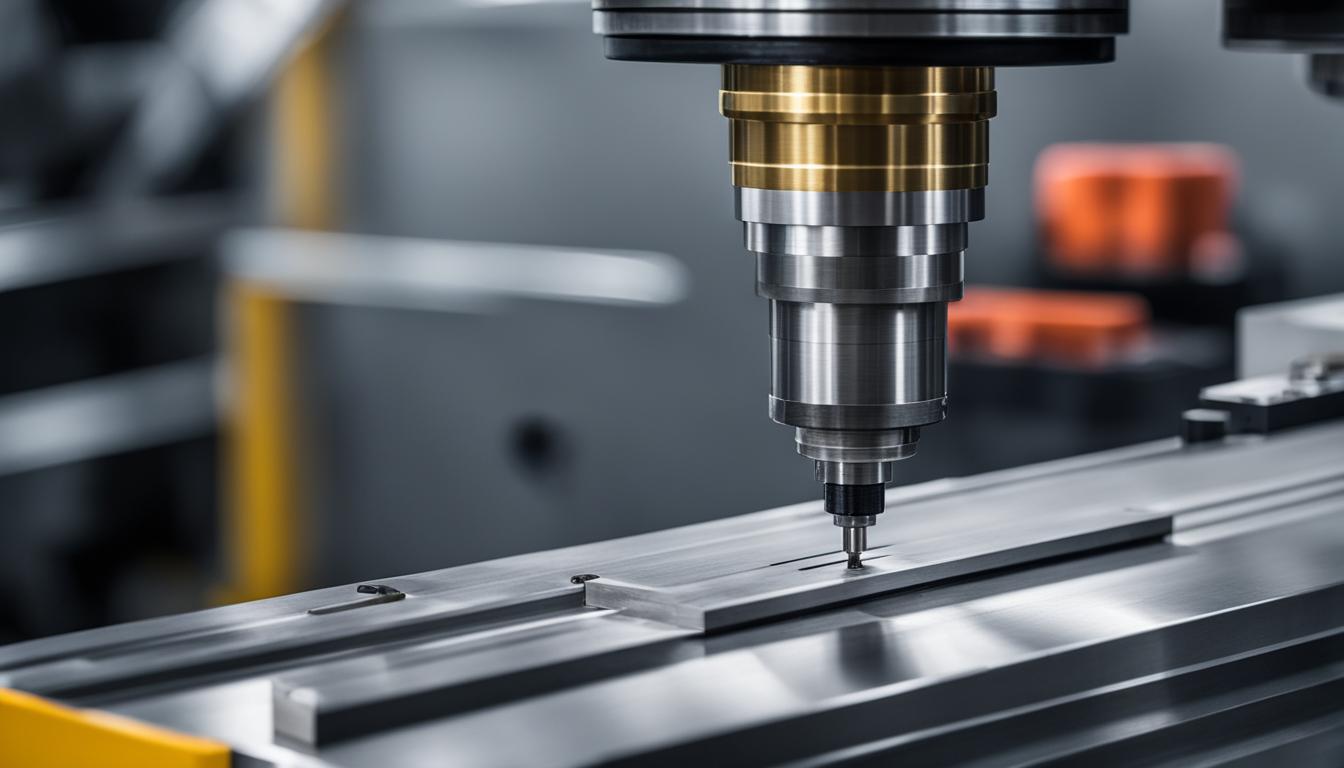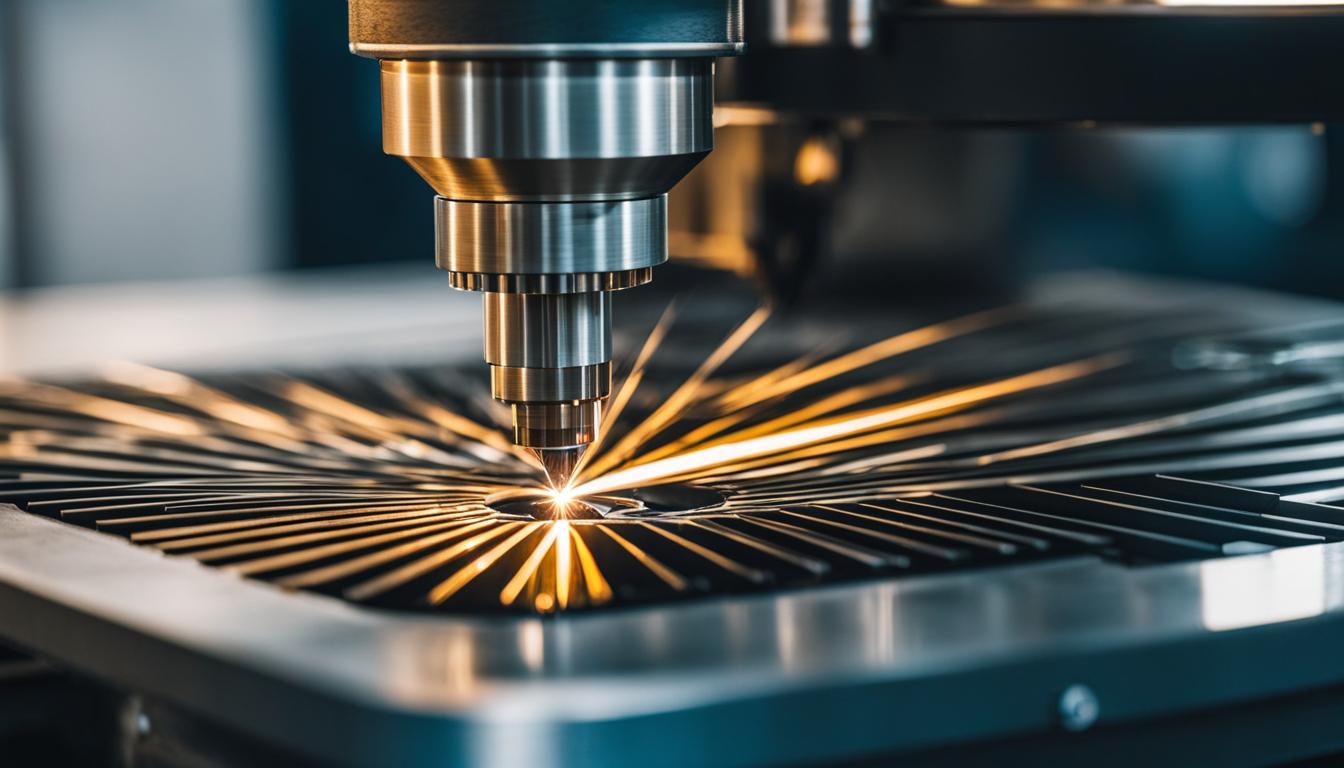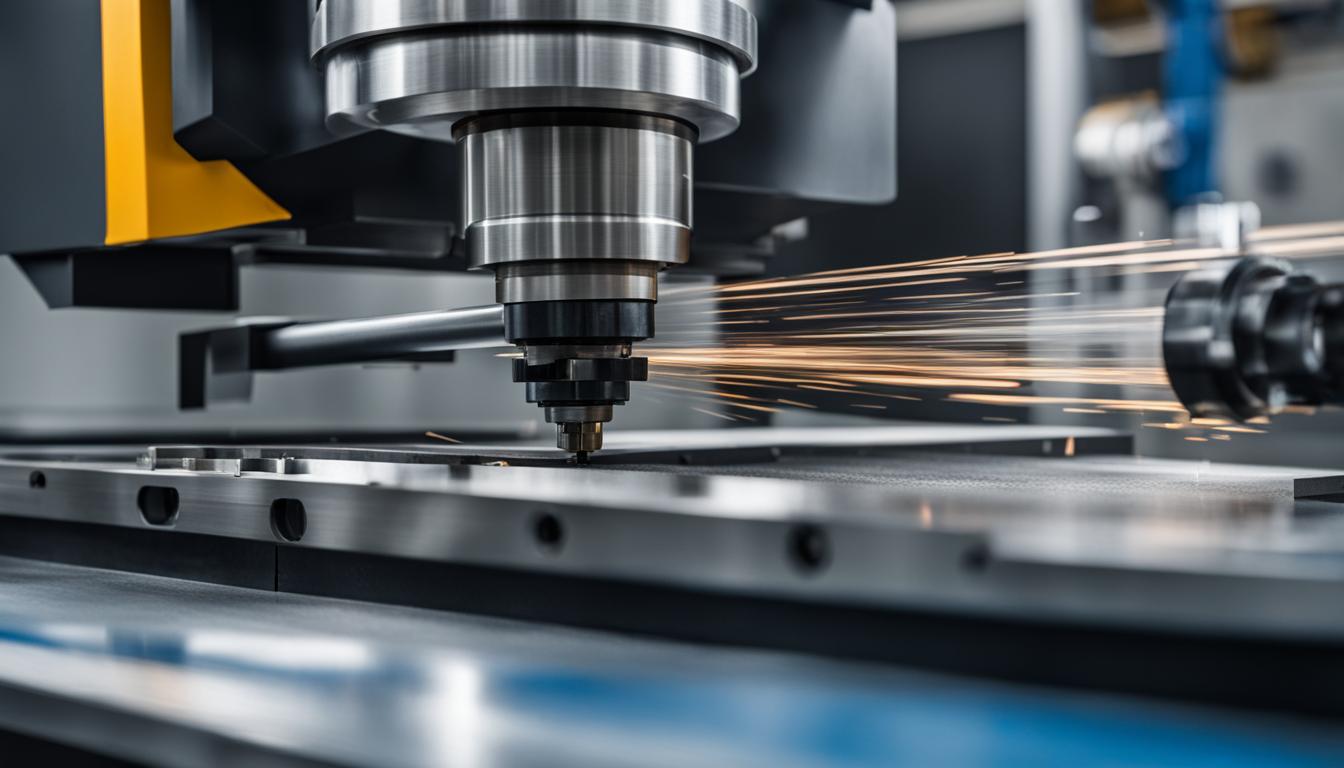Precision CNC machining is a sophisticated manufacturing process that utilizes computer numerical control (CNC) technology to create highly accurate and complex parts from various materials. This advanced technique involves the use of computerized machines that follow precise, programmed instructions to remove material from a workpiece, resulting in components with tight tolerances and exceptional surface finishes.
CNC machines can perform a wide range of operations, including milling, turning, drilling, and grinding, allowing for the production of intricate geometries that would be difficult or impossible to achieve through manual machining methods. The process begins with a 3D CAD model, which is then translated into a series of machine-readable instructions using CAM software. These instructions guide the CNC machine’s cutting tools along multiple axes, enabling the creation of parts with remarkable precision, often within tolerances of a few thousandths of an inch.
Precision CNC machining is widely used in industries such as aerospace, automotive, medical device manufacturing, and electronics, where high accuracy and consistency are crucial. This technology offers numerous advantages, including improved efficiency, reduced waste, enhanced repeatability, and the ability to produce complex parts quickly and cost-effectively, making it an indispensable tool in modern manufacturing.
- Precision CNC machining utilizes computer numerical control (CNC) machines to produce highly accurate and precise parts.
- It is widely used in industries such as aerospace, automotive, medical, and electronics.
- Precision CNC machining offers improved accuracy, repeatability, and efficiency in manufacturing.
- The process involves the use of specialized tools and advanced technology to create intricate shapes and features.
- By achieving tight tolerances, precision CNC machining ensures the production of reliable and consistent parts.
The Importance of Accuracy in CNC Machining
Accuracy plays a crucial role in the CNC machining process, offering several benefits for manufacturers and ensuring high-quality finished products. Precision CNC machining refers to the use of computer numerical control (CNC) machines to create parts with minimal deviation from the intended dimensions. CNC machines are programmed to perform precise movements and cuts, leading to improved accuracy in the manufacturing process.
One of the primary benefits of precision CNC machining is better product quality. By achieving accurate measurements and cuts, manufacturers can produce parts that meet the required tolerances. This reduces the likelihood of errors and ensures that the finished products function as intended. Whether it’s creating complex aerospace components or intricate electronic parts, accuracy is essential in meeting the stringent quality standards of various industries.
Another advantage of precision CNC machining is the reduced waste it offers. Accurate measurements and cuts minimize material wastage, leading to cost savings in the manufacturing process. With tighter tolerances, manufacturers can optimize material usage and minimize scrap, resulting in improved efficiency and cost-effectiveness.
Moreover, accuracy in CNC machining enhances overall efficiency. By achieving precise dimensions, manufacturers can streamline their production processes and reduce the need for manual adjustments or rework. This leads to faster turnaround times and increased productivity, allowing manufacturers to meet tight deadlines and satisfy customer demands.
Ultimately, the importance of accuracy in CNC machining lies in its ability to enable manufacturers to produce complex and intricate parts with precision and reliability. Whether it’s creating intricate automotive components or precise medical device parts, accuracy ensures that the finished products meet the highest standards of quality and functionality.
Understanding Precision in CNC Machining
Precision in CNC machining is a critical aspect that ensures consistent and accurate production of parts. It refers to the ability of a machine tool to consistently reproduce the same measurement or cut. This level of precision is essential in various CNC machining applications, ranging from the production of complex components to prototyping and high-volume manufacturing.
Precision machining services play a significant role in achieving tight tolerances and smooth finishes. These services utilize advanced CNC machines and cutting tools to deliver high levels of accuracy and repeatability. By employing state-of-the-art technology and skilled operators, precision machining services can create intricate parts with superior quality.
One of the primary benefits of precision CNC machining is its ability to produce parts with consistent dimensions and meet the specific requirements of each application. This level of precision plays a crucial role in industries such as aerospace, automotive, medical, and electronics, where even the slightest deviation can result in significant issues.
For example, in aerospace applications, precision machining is vital for producing components that meet stringent requirements and can withstand extreme environments. In medical device manufacturing, precision is crucial in creating intricate parts for surgical instruments and implants, ensuring optimal performance and patient safety.
CNC Machining Applications
Precision CNC machining has a wide range of applications across various industries. It is commonly used for:
- Creating complex components
- Prototyping new products
- Manufacturing high-volume production parts
- Producing precision parts for aerospace, automotive, medical, and electronics industries
- Developing customized parts with unique shapes and features
https://www.youtube.com/watch?v=eVhXpSATmdk
| Aerospace | Automotive | Medical | Electronics |
|---|---|---|---|
| Turbine blades | Engine components | Surgical instruments | Circuit boards |
| Aircraft parts | Transmissions | Implants | Connectors |
| Satellite components | Suspension parts | Diagnostic devices | Electronic components |
The Significance of Tolerance in CNC Machining
Tolerance is a critical factor in CNC machining, referring to the acceptable deviation from the standard or target measurement. CNC machines are designed to produce parts within specified tolerances to ensure proper fit and functionality. The selection of materials and the technology used in CNC machining also impact the achievable tolerances.
Modern CNC machining technology, incorporating advanced tooling and cutting strategies, enables manufacturers to achieve tighter tolerances and produce high-quality parts with minimal variation. CNC machining materials and technology play a vital role in the precision and accuracy of the final product.
With the advancements in CNC machining technology, manufacturers can achieve even tighter tolerances than ever before. These improvements provide several benefits, including enhanced product performance, increased durability, and improved overall quality.
Benefits of Achieving Tighter Tolerances:
- Improved product performance
- Enhanced durability and reliability
- Better overall quality
- Reduced scrap and waste
- Streamlined assembly and fit
By maintaining tight tolerances throughout the CNC machining process, manufacturers can ensure that the final parts meet the required specifications and perform optimally in their intended applications.
These advancements in tolerances, coupled with accuracy and precision, ultimately result in the production of reliable and consistent parts in CNC machining.
| Material | Tolerance |
|---|---|
| Aluminum | ±0.005 inches |
| Stainless Steel | ±0.004 inches |
| Titanium | ±0.003 inches |
| Brass | ±0.002 inches |
A Comparison of Accuracy, Precision, and Tolerance
In CNC machining, accuracy, precision, and tolerance are interconnected but have distinct meanings. Understanding these terms is crucial for ensuring the production of high-quality parts.
Accuracy
Accuracy refers to the degree of conformity between the actual measurement and the desired measurement. It indicates how closely the CNC machine can achieve the intended dimensions. In precision CNC machining, accuracy is essential for meeting the required specifications and ensuring the proper fit and functionality of the parts.
Precision
Precision, on the other hand, focuses on the repeatability of the measurement or cutting system. It measures the ability of the machine to consistently reproduce the same result. Achieving high precision allows for reliable and consistent production, reducing waste and improving overall efficiency in the manufacturing process.
Tolerance
Tolerance, in the context of CNC machining, defines the acceptable range of variation in the dimensions of a part. It represents the allowable deviation from the target measurement. Maintaining tight tolerances is crucial for ensuring the quality and functionality of the final product. CNC machines are programmed to produce parts within specified tolerances, ensuring consistency and adherence to the desired specifications.

By achieving high accuracy and precision while maintaining tight tolerances, precision CNC machining ensures the production of high-quality parts that meet the required specifications. This level of precision is essential, particularly in industries where accuracy and consistency are critical, such as aerospace, automotive, medical, and electronics.
| Term | Definition |
|---|---|
| Accuracy | The degree of conformity between the actual measurement and the desired measurement |
| Precision | The ability of a measurement or cutting system to consistently reproduce the same result |
| Tolerance | The allowable deviation from the target measurement, defining the acceptable range of variation in the dimensions of a part |
Applications of Precision CNC Machining
Precision CNC machining is a versatile manufacturing process that finds extensive applications across various industries. It offers the ability to produce complex and high-performance parts with exceptional accuracy and precision.
In the aerospace industry, precision CNC machining plays a crucial role in manufacturing critical components, such as turbine blades and aircraft parts. These components require the highest level of accuracy and precision to ensure optimal performance and safety.
The automotive industry also relies on precision CNC machining to produce engine components, transmissions, and suspension parts. The accuracy and precision of CNC machining contribute to the overall reliability and efficiency of automotive systems.
Medical device manufacturers utilize precision CNC machining to create intricate parts for surgical instruments and implants. The high accuracy and repeatability of CNC machining make it suitable for producing medical components with strict quality requirements.
The electronics industry benefits from precision CNC machining in the production of circuit boards, connectors, and electronic components. The precise tolerances achieved through CNC machining ensure the proper functionality of electronic devices.
Overall, precision CNC machining enables the manufacturing of complex and high-performance parts in various industries, thanks to its unparalleled accuracy and repeatability.
Advancements in CNC Machining Technology
CNC machining technology continues to evolve, driving improvements in accuracy and efficiency. These advancements have revolutionized the manufacturing industry, enabling precision and consistency in the production of complex parts.
One of the key factors contributing to the advancement of CNC machining technology is the development of computer-aided design (CAD) and computer-aided manufacturing (CAM) software. These sophisticated tools allow for precise programming of CNC machines, enabling better control and accuracy in the machining process.

High-speed machining techniques have also played a significant role in the advancement of CNC machining technology. By optimizing cutting parameters and utilizing advanced tooling, manufacturers can achieve faster material removal rates while maintaining the required accuracy. This results in improved cycle times and enhanced productivity.
Automation and robotics integration have further propelled the progress in CNC machining technology. By automating various aspects of the manufacturing process, such as loading and unloading of workpieces and tool changes, manufacturers can achieve higher efficiency and reduced labor costs. Robotics integration not only enhances productivity but also ensures consistent and precise operation.
The development of new materials and alloys suitable for CNC machining has expanded the range of applications for this technology. Innovations in materials science have led to the creation of stronger, lighter, and more durable materials that can be effectively machined using CNC techniques. These new materials, combined with the advancements in CNC machining technology, have resulted in improved overall machining accuracy and expanded possibilities in various industries.
Materials in Precision CNC Machining
Precision CNC machining is a versatile manufacturing process that can be applied to a wide range of materials. Whether you’re working with metals, plastics, or composites, CNC machines can accurately shape and cut these materials to create high-quality parts. The choice of material in precision CNC machining depends on various factors, including strength requirements, environmental conditions, and cost considerations.
Metal Materials
Metals are commonly used in CNC machining due to their excellent machinability, strength, and corrosion resistance. Some of the metals frequently utilized include:
- Aluminum: Lightweight and offers good conductivity and corrosion resistance.
- Stainless Steel: Provides durability, strength, and resistance to heat and corrosion.
- Titanium: Known for its high strength-to-weight ratio and resistance to extreme temperatures.
- Brass: Offers excellent conductivity, machinability, and corrosion resistance.
Plastic Materials
Plastics are widely used in precision CNC machining, particularly in industries such as electronics and automotive. Some common plastic materials include:
- ABS: A durable and versatile thermoplastic with good impact resistance.
- Nylon: Known for its strength, flexibility, and resistance to wear and tear.
- Polypropylene: Offers a high level of chemical resistance and is lightweight.
The choice between metal and plastic materials depends on the specific requirements of your project, such as the desired strength, weight, and performance characteristics of the part.
CNC machines and tooling are designed to handle different materials, ensuring the accuracy and precision of the machining process. The use of the appropriate tools, cutting strategies, and techniques enables manufacturers to achieve the desired results with high accuracy and repeatability.
Choosing a Precision CNC Machining Service Provider
When it comes to precision machining services, selecting the right CNC machining service provider is crucial. To ensure the highest quality results, it is essential to consider various factors before making a decision.
First and foremost, evaluate the capabilities and experience of the service provider. Look for a company with a proven track record in delivering high-quality parts with tight tolerances. A reliable precision machining service provider will have a deep understanding of CNC machining technology and employ state-of-the-art equipment to handle diverse materials and meet the required accuracy and precision.
Furthermore, consider the service provider’s expertise in your specific industry or application. Different industries have unique machining requirements, and it is important to work with a service provider who understands the nuances and challenges of your industry. Experienced professionals who have successfully worked on similar projects can provide valuable insights and customized solutions to meet your specific needs.
Lastly, pay attention to the service provider’s quality control measures. Look for certifications and accreditations that demonstrate their commitment to maintaining high-quality standards. A reliable precision CNC machining service provider will have robust quality control processes in place to ensure consistent and accurate results every time.
